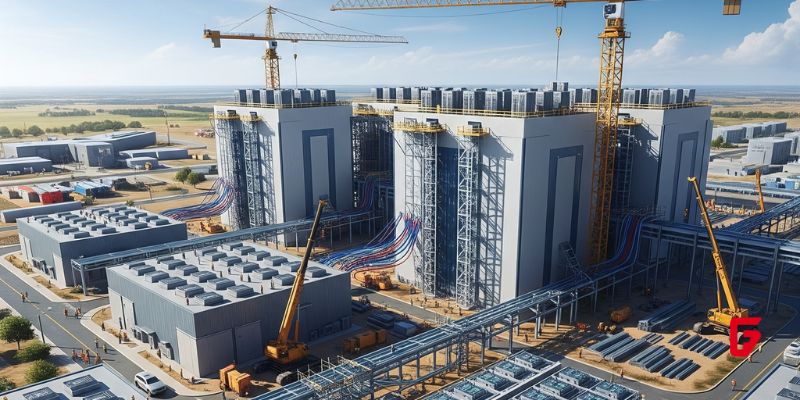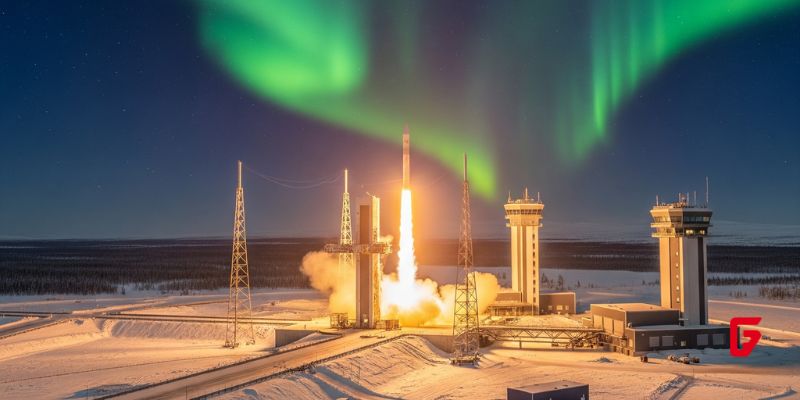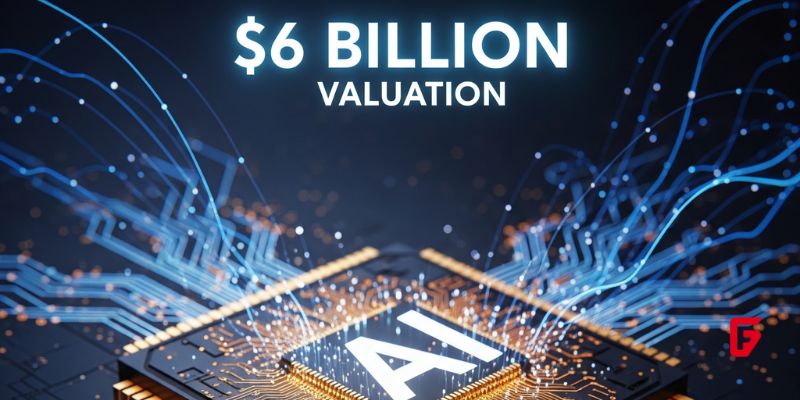By futureTEKnow | Editorial Team
Real estate tokenization, rooted in blockchain technology, has rapidly evolved since the early 2010s. The introduction of smart contracts on platforms like Ethereum in 2015 revolutionized the concept, enabling automated asset management without intermediaries. From its nascent stages, the market has grown significantly, with the global real estate tokenization market valued at $2.81 billion in 2023.
Current trends show a robust growth trajectory, with projections estimating the market to reach $11.80 billion by 2031, growing at a compound annual growth rate of 19.9%. This growth is driven by increasing investor interest in fractional ownership, enhanced liquidity, and the desire for diversified investment portfolios. Notable projects like the tokenization of the St. Regis Aspen Resort demonstrate the practical application and success of this innovative approach in the real estate sector.
This cutting-edge technology is transforming property investment, making it more accessible and efficient. Learn how blockchain and smart contracts are reshaping the real estate market, offering new opportunities for investors worldwide.
Blockchain technology and smart contracts form the backbone of real estate tokenization, revolutionizing property transactions. This innovative approach leverages distributed ledger technology to create digital representations of real estate assets, enhancing transparency and security.
Smart contracts, self-executing agreements with coded terms, automate processes like ownership transfers and token trading, eliminating intermediaries and reducing costs. By utilizing blockchain’s immutable ledger, all transactions are recorded transparently, making them tamper-proof and trustworthy. This combination of blockchain and smart contracts not only streamlines property management but also opens up new possibilities for fractional ownership and increased market liquidity.
The process of tokenizing real estate assets involves several key steps that transform physical properties into digital tokens on a blockchain. First, the asset is identified and its ownership is verified through legal documents. Next, an accurate valuation of the property is conducted, considering factors like location, market demand, and physical condition. A digital representation of the asset is then created on a chosen blockchain network, typically through a smart contract that defines the token’s parameters.
This smart contract is carefully coded, audited, and tested to ensure compliance with regulations. Once the smart contract is deployed, tokens representing fractional ownership of the property are issued and recorded on the blockchain. These tokens can then be bought, sold, or traded by investors, with all transactions securely and transparently recorded on the distributed ledger
Increased liquidity is one of the most significant advantages of real estate tokenization, transforming how investors engage with property markets. Traditionally, real estate transactions involve lengthy processes and substantial capital outlays, making it difficult for many to enter the market. Tokenization allows properties to be divided into digital tokens, which can be easily bought and sold on digital platforms, similar to stocks.
This facilitates quicker transactions and enables fractional ownership, lowering the barriers to entry for smaller investors. As a result, tokenized assets can be traded more efficiently, creating a dynamic marketplace that enhances liquidity and attracts a broader range of participants. This shift not only democratizes real estate investment but also increases overall market activity, driving demand and potentially leading to higher asset values.
Fractional ownership and accessibility are key benefits of real estate tokenization, fundamentally changing how individuals invest in property. By dividing real estate into digital tokens, investors can purchase smaller shares of high-value assets, significantly lowering the financial barrier to entry. This democratization of real estate investment allows a broader range of investors, including those with limited capital, to participate in markets that were previously out of reach.
With tokenization, individuals can own a fraction of luxury properties or commercial buildings, enhancing portfolio diversification while minimizing risk exposure. Moreover, the global nature of blockchain technology enables investors from anywhere in the world to access these opportunities, fostering a more inclusive investment landscape.
These are two of the most significant benefits of real estate tokenization, fundamentally transforming how property transactions are conducted. By utilizing blockchain technology, every transaction is recorded on an immutable ledger, ensuring that all ownership changes and financial activities are transparent and verifiable. This level of transparency fosters trust among investors, significantly reducing the likelihood of fraud and disputes.
Additionally, the automation provided by smart contracts streamlines the entire transaction process, eliminating the need for multiple intermediaries such as brokers and lawyers. This not only accelerates transactions but also reduces associated costs, making real estate investments more efficient and accessible to a broader range of investors. As a result, tokenization enhances market confidence and drives greater participation in the real estate sector.
The legal and regulatory framework surrounding real estate tokenization is complex and varies significantly across jurisdictions. As tokenized assets are often classified as securities, issuers must navigate a myriad of regulations to ensure compliance. This includes drafting offering memorandums that detail the investment’s terms and conditions, as well as implementing Know Your Customer (KYC) and Anti-Money Laundering (AML) protocols to verify investor identities and prevent illicit activities.
Also keep in mind that token issuers may need to register with regulatory bodies like the SEC or seek exemptions under frameworks such as Regulation D for accredited investors. The evolving nature of these regulations necessitates that both issuers and investors stay informed to mitigate risks and ensure the legality of their transactions in this burgeoning market.
Security concerns are a significant challenge in the tokenization of real estate assets, as the digital nature of this innovative technology exposes it to various cyber threats. Tokenization platforms can be vulnerable to unauthorized access, where hackers may exploit weaknesses to gain control over investor funds or sensitive information. Common threats include phishing attacks aimed at deceiving users into revealing private keys or login credentials, as well as potential flaws in smart contract code that could lead to financial losses through hacks.
The impact of real estate tokenization on investment patterns is profound, as it fundamentally alters how individuals and institutions approach property investments. Traditionally, investing in real estate required substantial capital, often limiting access to affluent investors. However, tokenization democratizes this space by enabling fractional ownership, allowing investors to purchase smaller shares of high-value properties through digital tokens.
This shift not only lowers the barriers to entry but also encourages a diverse range of investors to participate in the market. With enhanced liquidity, tokenized assets can be traded on secondary markets, providing investors with greater flexibility and the ability to quickly adjust their portfolios.
As a result, we are witnessing a trend towards more dynamic investment strategies, where individuals can diversify their holdings across multiple properties and regions without the burdensome financial commitments of traditional real estate investments.
The future prospects for real estate tokenization are exceptionally bright, with significant market growth anticipated in the coming years. This growth is driven by increasing investor interest in fractional ownership, which allows individuals to invest in real estate with lower capital requirements, thus broadening access to diverse investment opportunities.
As blockchain technology matures and regulatory frameworks evolve, tokenization is expected to become more mainstream, facilitating smoother transactions and enhancing market liquidity. With the potential for tokenized assets to reach a market cap of $1.4 trillion by 2025, the integration of advanced technologies and clearer regulations will likely propel the real estate industry into a new era of accessibility and efficiency.
The tokenization of real estate assets is set to transform the property investment landscape by making it more accessible and efficient. As blockchain technology and smart contracts streamline transactions, investors can enjoy increased liquidity and fractional ownership opportunities. With strong growth projections and evolving regulations, the future of real estate tokenization looks promising, offering innovative solutions for both investors and property owners alike. Embracing this trend can lead to a more dynamic and inclusive real estate market.
Founded in 2018, futureTEKnow is a global database dedicated to capturing the world’s most innovative companies utilizing emerging technologies across five key sectors: Artificial Intelligence (AI), immersive technologies (MR, AR, VR), blockchain, robotics, and the space industry. Initially launched as a social media platform to share technology news, futureTEKnow quickly evolved into a comprehensive resource hub, spotlighting the latest advancements and groundbreaking startups shaping the future of tech.

Meta is set to launch its massive 5-gigawatt AI data center—Hyperion—by 2026 in Louisiana and Ohio, redefining AI infrastructure and digital innovation with one of the world’s largest superclusters.

Discover how Amazon’s increased investment in Anthropic is accelerating AI breakthroughs, boosting cloud business, and influencing the tech scene in Miami and the US.

Canada is powering its AI future with a $98.6M investment in 23 leading projects, advancing technology, innovation, and competitive industries nationwide in 2025.

The Ax-4 crew made history with 18 days on the ISS, marking firsts for India, Poland, and Hungary, and safely returned to Earth in SpaceX’s Dragon Grace capsule.

Claude AI’s new Canva integration allows users to generate and edit designs directly in chat using natural language. This collaboration streamlines creative workflows and delivers a new standard in digital design.

OpenAI’s Stargate Megafactory in Abilene, Texas is set to become the world’s largest AI data center, driving innovation and economic growth in the region.

Elon Musk’s Super Grok subscription debuts AI companions like Ani and Bad Rudy, offering users a new level of interactive, personalized AI. Explore how this feature is reshaping digital relationships and the future of conversational technology.

Europe is turning to Nordic spaceports in Sweden and Norway to boost satellite launches and reduce reliance on US technology, marking a new era of European space independence.

Foundation EGI has raised $23M to build the first engineering general intelligence platform, aiming to solve inefficiencies in manufacturing with AI-driven automation, precision, and speed.

Groq’s anticipated $6 billion valuation highlights its role as a key innovator in AI chip technology, driven by a $1.5 billion Saudi Arabia deal and rapid market expansion.

The Robinhood CEO’s new AI math startup is valued at $900 million, signaling a major leap for AI-powered education and the future of personalized learning.

Mistral AI is reportedly seeking up to $1 billion in new funding, a move that could reshape the generative AI landscape. Explore the implications for tech and investors.
futureTEKnow is focused on identifying and promoting creators, disruptors and innovators, and serving as a vital resource for those interested in the latest advancements in technology.
© 2025 All Rights Reserved.
To provide the best experiences, we use technologies like cookies to store and/or access device information. Consenting to these technologies will allow us to process data such as browsing behavior or unique IDs on this site. Thanks for visiting futureTEKnow.